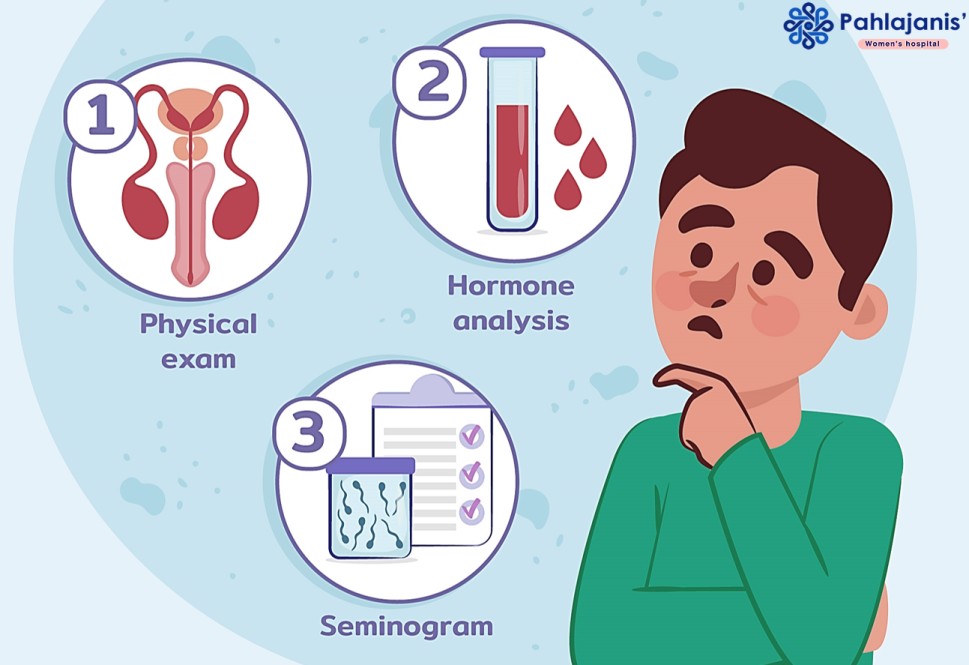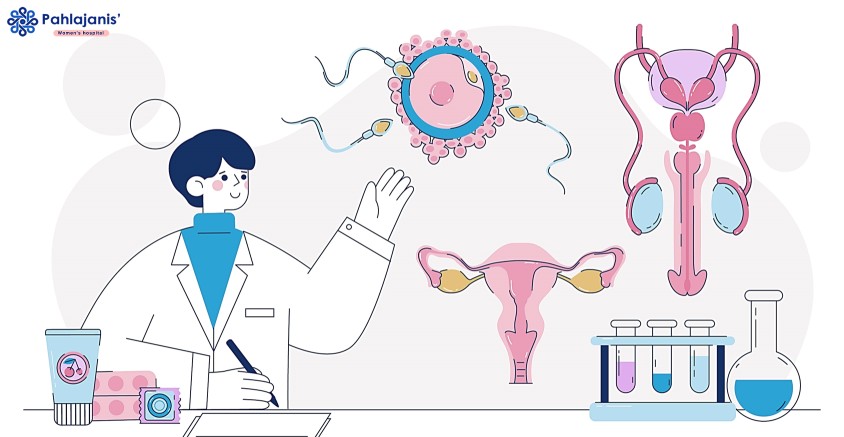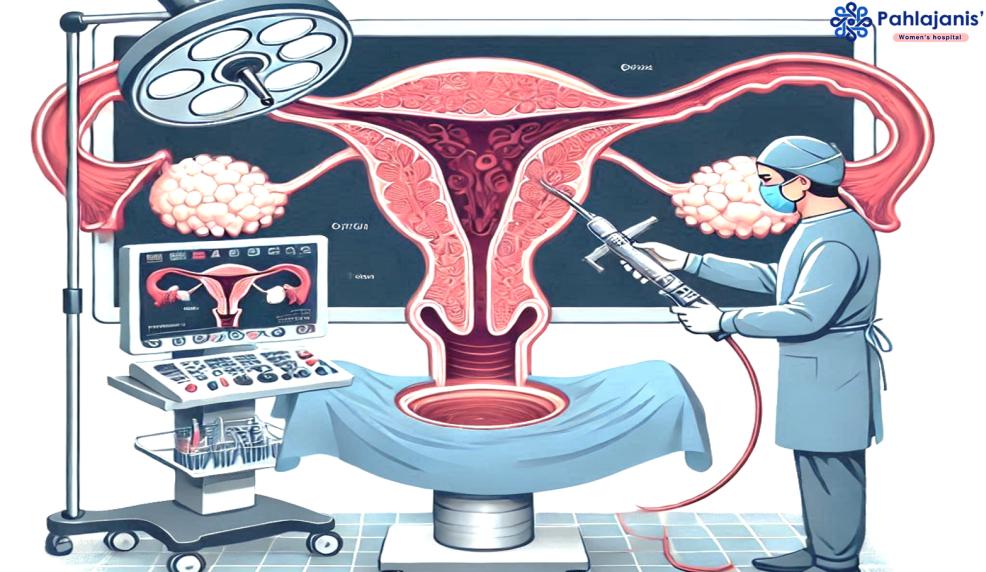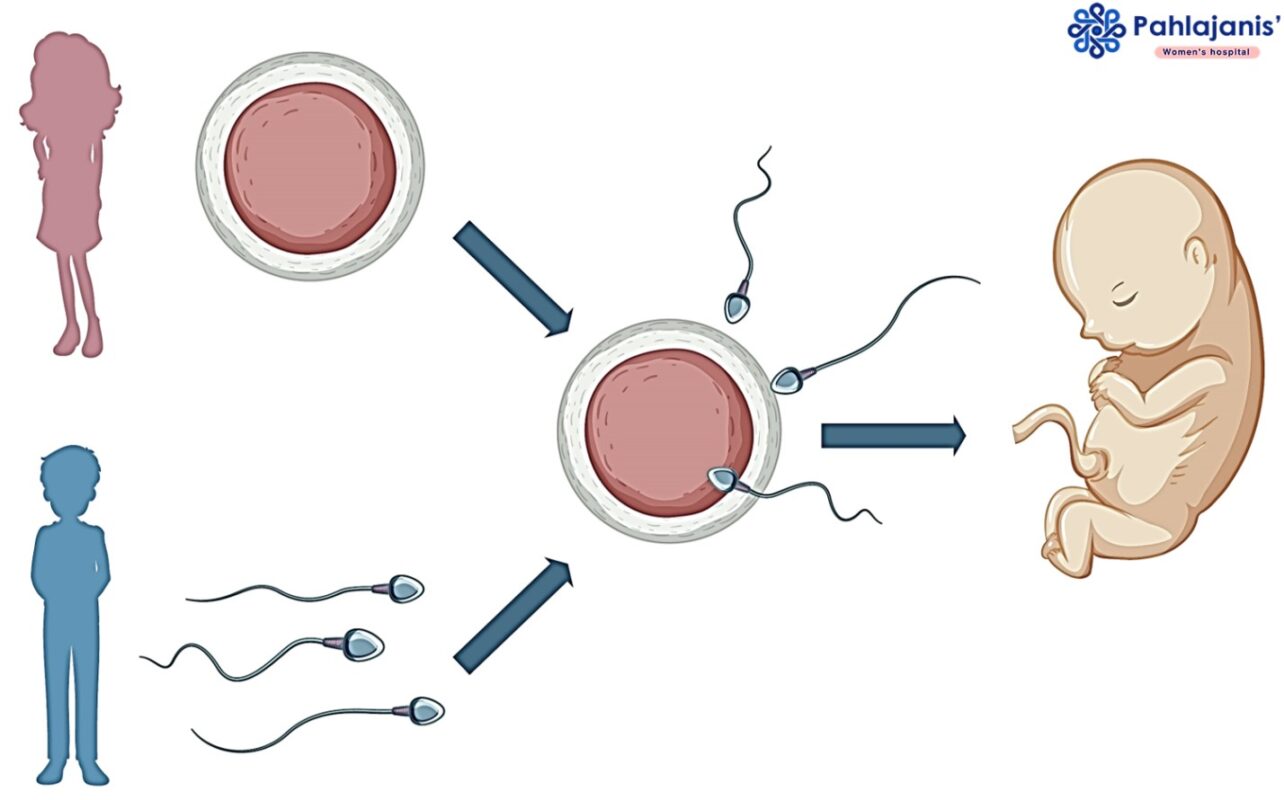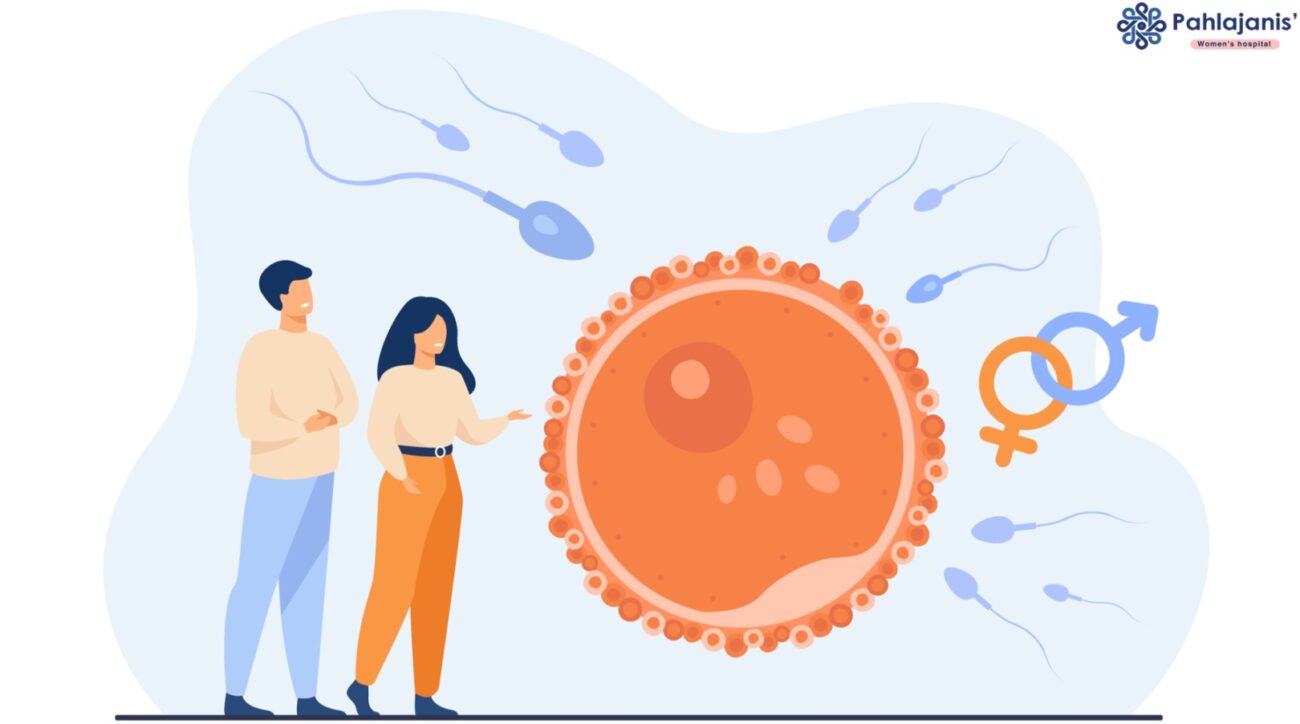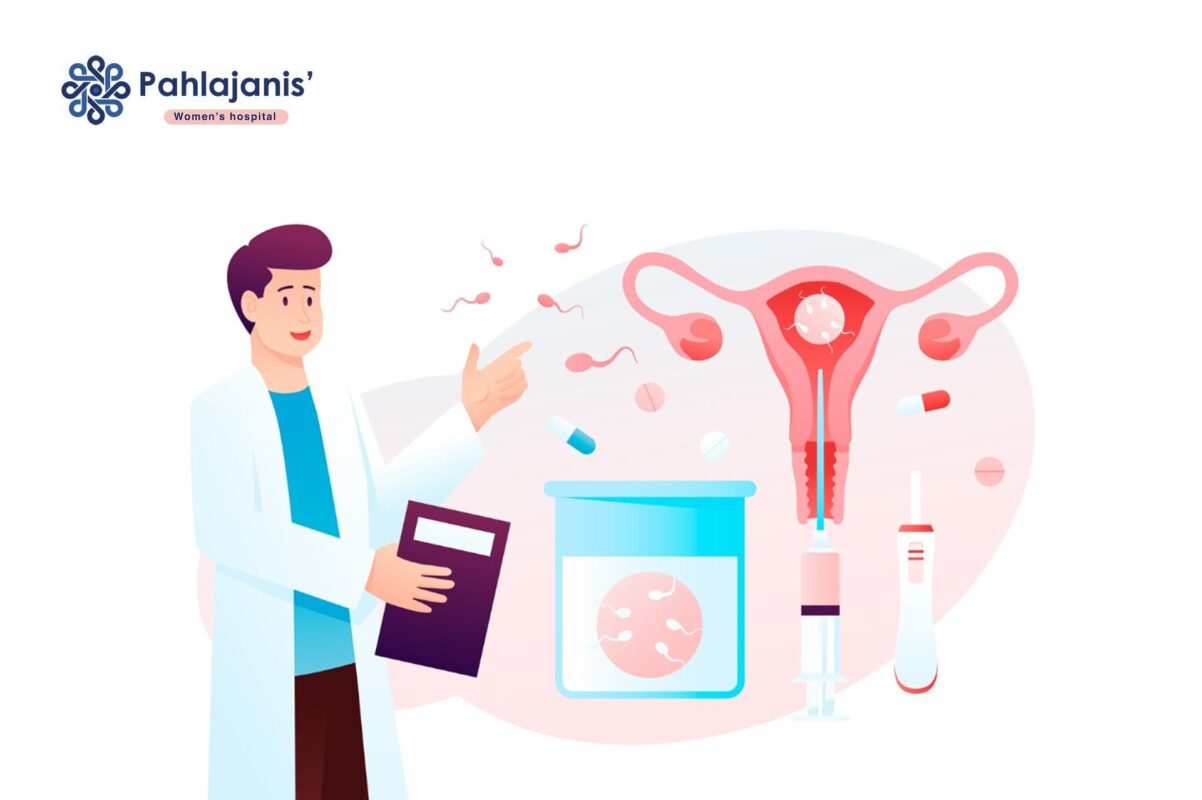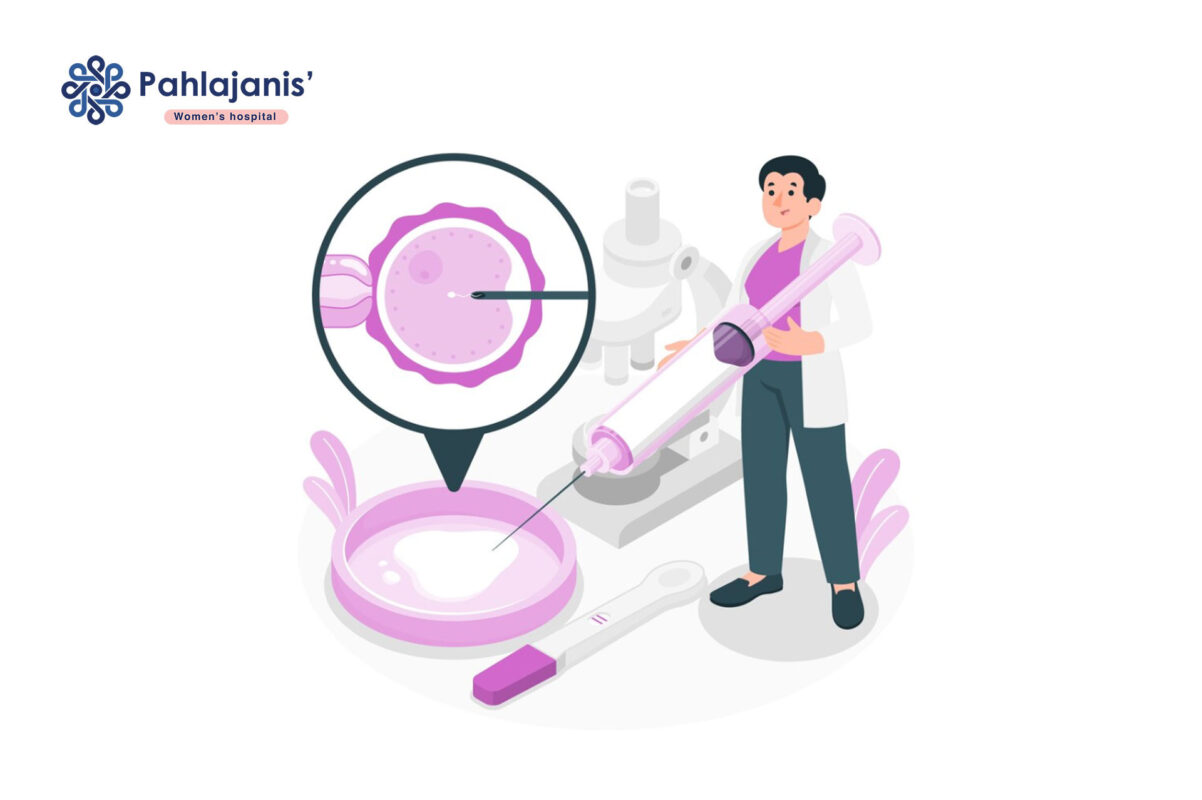Infertility is a challenge that many couples face when trying to have a baby. While most people think of infertility as a women’s issue, male infertility plays a role in nearly half of all infertility cases. Approximately 15% of couples globally experience infertility, with male factor infertility contributing to 20-30% of cases and combined male and female factors accounting for an additional 20%. This blog will explain male factor infertility and how IVF (In Vitro Fertilization) treatments can help men overcome these challenges.
What is Male Infertility?
Male infertility happens when a man’s reproductive system has problems that make it difficult for him to father a child. These problems often relate to sperm production, movement, or delivery. Common causes of male infertility include:
- Low sperm count (oligospermia)
- Poor sperm quality, such as abnormal morphology or low motility
- Blockages in the reproductive tract
- Hormonal imbalances
- Genetic issues like Klinefelter syndrome
It’s estimated that about 1 in 20 men has a fertility problem linked to low sperm count or quality. Understanding the cause of male infertility is the first step toward finding the right solution.
How is Male Infertility Diagnosed?
Doctors use various methods to diagnose male infertility. One of the most common tests is semen analysis. This test checks the number, shape, and movement of sperm in a man’s semen. Key indicators include:
- Total Count of Sperm: A normal count is typically 15 million or more sperm per milliliter of semen.
- Motility of Sperm: Healthy motility should be above 40%.
- Morphology of Sperm: Normal shapes are crucial for effective fertilization; typically, at least 4% of sperm should have a normal shape.
In some cases, additional tests may be required, such as:
- Hormone Testing: Checks testosterone and other hormone levels, as low levels can impact sperm production.
- Genetic Tests: Identify inherited conditions affecting fertility, such as cystic fibrosis gene mutations.
- Imaging Tests: Ultrasounds or MRIs to detect blockages or structural abnormalities in the reproductive system.
What is Male IVF Treatment?
When natural conception is not possible, Male IVF Treatment can help. IVF is a fertility treatment where the egg and sperm are combined in a lab to create an embryo, which is then transferred to the woman’s uterus. For men with infertility issues, specialized techniques like ICSI (Intracytoplasmic Sperm Injection) may be used.
In ICSI, a single healthy sperm is injected directly into an egg, increasing the chances of fertilization. This method is particularly helpful for:
- Men with low sperm count or motility
- Men with a history of unsuccessful fertilization in previous IVF cycles
With ICSI, fertilization success rates can reach up to 70% per cycle.
How Can the Best IVF Center in Bilaspur Help?
If you are looking for advanced fertility treatments, the Best IVF Center in Bilaspur offers state-of-the-art facilities and experienced specialists to guide you through every step of the process. Services typically include:
- Advanced diagnostic tests, such as DNA fragmentation analysis, to assess sperm quality.
- Techniques like ICSI, PESA (Percutaneous Sperm Aspiration), and TESA (Testicular Sperm Aspiration) for severe cases of male infertility.
- Sperm freezing for future use, especially for men undergoing medical treatments like chemotherapy.
The IVF center in Bilaspur focuses on personalized care, ensuring that you get a treatment plan tailored to your specific needs.
Sperm Quality Improvement Tips
Improving sperm quality is essential for successful conception, whether naturally or through IVF. Here are some simple male fertility tips to boost sperm health:
- Eat a Balanced Diet: Include foods rich in antioxidants, such as vitamin C, E, and selenium. Studies show that antioxidants can reduce sperm DNA damage by up to 20%.
- Stay Active: Regular exercise improves blood flow and testosterone levels. Men who engage in moderate exercise at least 5 times a week can improve sperm concentration by 15%.
- Avoid Smoking and Alcohol: Smoking can lower sperm count by up to 23%, while excessive alcohol intake can lead to hormonal imbalances that reduce fertility.
- Manage Stress: High stress levels release cortisol, which can negatively impact testosterone production. Studies have shown that mindfulness and yoga improve sperm quality by reducing stress.
- Maintain a Healthy Weight: Overweight men are 20% more likely to have low sperm counts. Weight loss can significantly improve sperm concentration and motility.
- Stay Cool: Avoid hot baths, saunas, and tight clothing, as heat can damage sperm. Sperm production occurs best at a temperature slightly below the body’s core temperature.
Fertility Treatments for Men
In addition to lifestyle changes, medical treatments can also improve male infertility. These include:
- Medications: Hormone replacement therapy or drugs like Clomiphene to boost testosterone and sperm production.
- Surgical Procedures: Microsurgery to repair varicoceles (enlarged veins in the scrotum) or remove blockages in the vas deferens.
- Assisted Reproductive Techniques:
- ICSI: Injecting a single sperm into an egg.
- TESA or PESA: Extracting sperm directly from the testes or epididymis.
The fertility specialists at the IVF center in Bilaspur can guide you in choosing the best option based on your condition.
Why Choose IVF for Male Infertility?
IVF is a proven solution for many male infertility cases. Here’s why:
- High Success Rates: With ICSI and advanced sperm retrieval methods, even men with severe infertility issues can achieve fertilization. The overall success rate of IVF with ICSI is about 60-70% per cycle.
- Comprehensive Care: IVF centers provide diagnostic, treatment, and emotional support throughout the process.
- Scientific Advancements: Techniques like preimplantation genetic testing (PGT) can ensure only healthy embryos are implanted, improving success rates.
The Role of Male Reproductive Health
Maintaining good male reproductive health is vital for overall fertility. Regular check-ups with a doctor can help identify and address issues early. Some key statistics highlight the importance of early intervention:
- About 10% of men under 40 experience fertility issues.
- Men over 40 are 50% more likely to have children with genetic abnormalities due to declining sperm quality.
It’s also important to have open communication with your partner and healthcare provider to ensure you’re getting the right care.
Why Choose Pahlajanis’ IVF Center in Bilaspur?
Pahlajanis’ IVF Center in Bilaspur stands as a beacon of hope for couples facing infertility challenges, offering cutting-edge treatments like ICSI, PESA, and TESA tailored for male infertility cases. With a team of experienced specialists, state-of-the-art technology, and a patient-centered approach, Pahlajanis’ ensures personalized care at every step. The center’s commitment to excellence has made it a trusted name for those seeking advanced fertility solutions, giving families the confidence to embark on their parenthood journey.
Conclusion
Male factor infertility, once considered an insurmountable challenge, is now manageable thanks to advancements in fertility treatments like IVF. With innovative techniques such as ICSI and personalized care available at leading centers like Pahlajanis’ IVF Center in Bilaspur, couples have a greater chance of achieving their dream of parenthood. By addressing the root causes, improving sperm quality through lifestyle changes, and seeking expert guidance, men can take proactive steps toward overcoming infertility. Remember, the journey to parenthood is a shared effort, and with the right support and treatments, hope turns into reality.
If you’re facing difficulties, don’t hesitate to reach out to an IVF Center in Bilaspur. With the right support and advanced treatments, the dream of parenthood is within reach.

